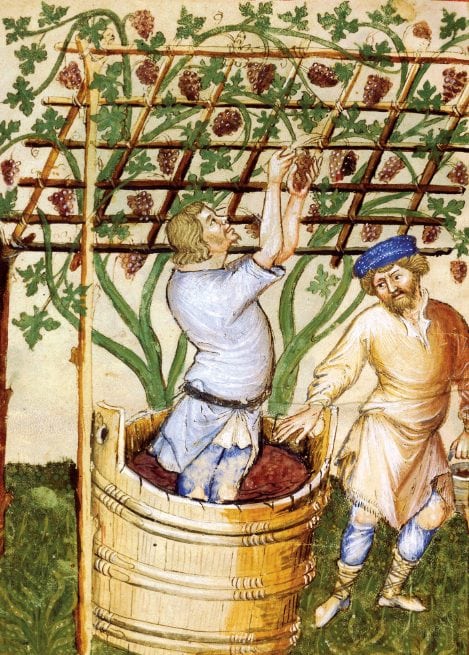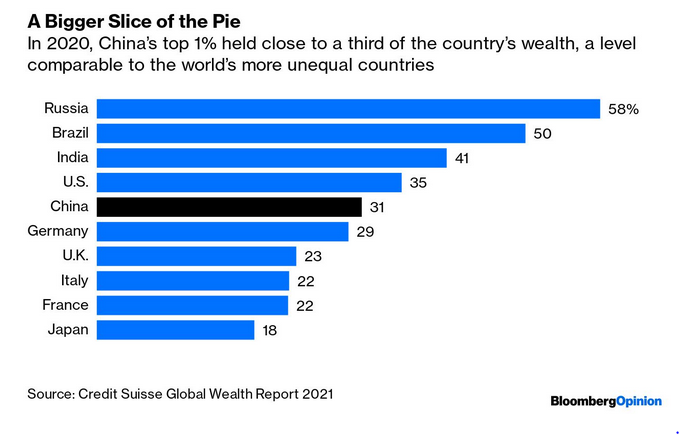|
You
can also view the message online
|
||||||||||||||
 Châtenay-Malabry (FR - 92290), October 25, 2021 EFITA newsletter / 1010 - European Federation for Information Technology in Agriculture, Food and the Environment Do not miss the Virus Jokes in English and French The informatique-agricole.org site now offers you the possibility of subscribing the RSS feeds of its two newsletters See RSS feeds to implement to ensure that you continue to receive this newsletter To unsubscribe this newsletter, please contact me directely: guy.waksman(a)laposte.net if this link Unsubscribe does not work. Please note that I changed the presentation of the links that are embedded in the name of the web service. 
To correspond with me (GW), please use this address: guy.waksman(a)laposte.net To subscribe the efita newsletter (please ask your friends and colleagues to test this link) Efita Newsletters subscription Before computers... Weekly newsletters about ICT in Agriculture in English and French Both newsletters have around 14000 subscribers. >>> Last weekly EFITA Newsletters in English (created in 1999) Efita Newsletters >>> Last weekly AFIA Newsletters in French (created more than 20 years ago in 1997) Afia Newsletters >>> Statistics for the last efita newsletter >>> Last issue of the afia newsletter >>> Last available satistics for the afia newsletter Nothing is more responsible for the good old days than a bad memory: Vendanges à la main Grandes heures de Rohan, Anjou, vers 1430 Future Farming (NL) > Outdated legislation stands in the way of field robots While agricultural robots are capable of working around the clock to help farmers produce food, laws and regulations are outdated and may, at worst, be slowing the development of new technologies. > Spraying technology: AI precision spraying technology to cut herbicide use by 78% Greeneye Technology claims its AI-enabled precision spraying technology cuts herbicide use by 78% and reduce herbicide costs by more than 50%. > Spraying robots: Yanmar launches autonomous vineyard spraying robot The Yanmar YV01 autonomous spraying robot can ascend and descend slopes of up to 45%. > Field robots: AgroIntelli to enter French market with Robotti field robot Danish company AgroIntelli is working together with French company Euromagri to launch the autonomous field robot Robotti in France. > Irrigation: Netafim to launch sustainable irrigation solutions at EIMA The Netafim booth at EIMA will introduce a range of new products and solutions, including: Sophia PSS, Streamline X ReGen, Netbow, and AlphaDisc. > Robots at work: 15 impressive farming robots | Part 2 Now online: part 2 of our field robot catalogue series. > Field robots: Who will win the Best Field Robot Concept Award 2021? The international agricultural robot event FIRA and Future Farming magazine will award prizes for the Best Field Robot Concept of 2021. > Field robots: Naïo to expand globally with Robots as a Service Naïo Technologies aims to accelerate its international growth by launching a new Robots as a Service (RaaS) business model. > Help complete our robot and autonomous tractor catalogue Future Farming is on a quest to update and complete its catalogues and buyers guides of field and harvest robots and autonomous tractors for 2022. > 13.000 hectares farmer desperately looking for unmanned tractor Australian arable farmer Gerrit Kurstjens needs an autonomous tractor. In this video he and his daughter Marieke tell why. > Premiere: autonomous/robotic orchard sprayer Hol Spraying Systems is to reveal an autonomous orchard sprayer that can not only spray, but also refill automatically and take care of mowing, weeding and fertilisation. > Storage technology: Substantial potential for automation in the grain bin Options and challenges for safer, more efficient grain storage and movement. > Electric tractors: Electric tractor saves Wente Vineyards $ 2,600 per year How much money does an electric tractor save in terms of fuel costs? Monarch Tractor did a case study at Wente Vineyards, in the United States. See futurefarming.com The International Energy Agency publishes the detailed, global energy data we all need, but its funders force it behind paywalls. Let’s ask them to change it. To make the transition to low-carbon energy sources and address climate change, we need open data on the global energy system. High-quality data already exists: it is published by the International Energy Agency. But despite being an international institution that is largely publicly funded, most IEA data is locked behind paywalls. In our latest article, we describe the high costs of this data not being open. We suggest that the countries that fund the IEA drop the requirement to place data behind paywalls and increase their funding. The benefits of opening this important data are much larger than the costs. Which countries are on track to reach global COVID-19 vaccination targets? In August 2021, the United Nations, International Monetary Fund, World Bank, World Health Organization, and World Trade Organization called for international commitment and support so that every country will have vaccinated at least 40% of its population with at least one dose by the end of 2021. Based on our international COVID vaccination data, we have made projections of which countries are on track to achieve this. This map shows which countries have already surpassed the 40% target; which ones are on track to meet it by the end of 2021 based on recent vaccination rates; and which ones are not on track. We will update these projections weekly to continue to monitor global progress towards this goal. Carbon Credits: Patience Will Pay for Farmers While the carbon credit market is young, it’s important for farmers to keep their data in a standardized, independent repository. See precisionag.com NatureSweet Forms Joint Venture with Ganfer to Accelerate Vertically Integrated Greenhouse Production The joint venture will immediately add over 200 acres to the more than 1,200 acres already owned by NatureSweet. See precisionag.com Taranis, Albo Climate Form Partnership to Deliver Satellite-Based Carbon Credit Verification The companies will jointly develop AI-powered remote sensing technology for soil carbon verification in row crops. See precisionag.com Nothing is more responsible for the good old days than a bad memory: Jeune fille allant à la fontaine, par William Adolphe Bouguereau (1825 – 1905, French) Yanmar Introduces New Autonomous Vineyard Robot The vineyard robot offers a host of benefits for wine growing operations of all sizes including enhanced safety, productivity, cost reductions, and versatility. See precisionag.com Greeneye Launches AI Precision Spraying Technology Commercial launch takes place in Israel, with roll-out in North America set to follow in early 2022. See precisionag.com Nothing is more responsible for the good old days than a bad memory: Fileuse, par William Adolphe Bouguereau (1825 – 1905, French) VISION’s perspective covers the full ag-tech ecosystem yet is expertly focused on what’s real, what’ll work, and what’s truly driving the future of food and agriculture. See Integrated New Solutions—Advancing the Future of Agriculture Continuum Ag’s founder on the role of soil data in regenerative agriculture, AFN, by Jennifer Marston “Whether it be with soil health overall or with carbon, there’s no consistency around how we actually measure it,” says Mitchell Hora, founder and CEO of Washington, Iowa-based Continuum Ag. He’s speaking to AFN about the need to improve soil health on the farm and how better tools around soil data can help. His startup aims to do just that through its web-based platform called TopSoil, which gathers agronomic data and compiles it in a single interface. With TopSoil, farmers track and manage soil data, then use those insights to improve soil health by implementing regenerative agricultural practices such as no-till farming and cover cropping. .../... See agfundernews.com CIBO Technologies raises $30m Series C funding for carbon trading tools, AFN, by Jack Ellis …/… According to the startup, CIBO Enterprise allows agrifood companies to monitor their carbon management-related activities and incentivize farmers in their value chains to take up regenerative agriculture. “The platform enables generation of carbon credits for offsetting, management of scope 3 emission reductions in the food value chain, and directs incentives to growers for new practice adoption,” it said. CIBO Enterprise is one of three core products offered by the company, along with CIBO Insights — which offers land and farm data intelligence — and CIBO Grower, which helps farmers to discover emissions-related incentive schemes. …/… See agfundernews.com Nothing is more responsible for the good old days than a bad memory: Apple Harvest is a painting, by Seurat Agricorp is spicing things up for Nigerian farmers following $17.5m funding, AFN, by guest contributor: Lucy Ngige Kenneth Obiajulu and Wale Omotimirin launched Agricorp, a tech-enabled agronomic services startup, three years ago to help Nigeria’s spice farmers overcome issues common across Africa’s agriculture sector: lack of access to farm services, financing, and market access. Back then, they couldn’t have predicted what 2020 and 2021 would have in store for their business. Amid Covid-19, business boomed. .../... See agfundernews.com Onato scores seed funding to digitalize India’s fruit & veg supply chain, AFN, by Jack Ellis .../... Onato was launched in February this year by Vedant Katiyar — who had previously founded another data-centric agtech startup, called Gobasco — and Ashish Jindal, an engineer who has served stints with Amazon and food delivery unicorn Swiggy, among other tech companies. According to Katiyar and Jindal, India’s fresh fruit and vegetable industry is worth over $100 billion per annum. However, it is plagued with inefficiencies — from unreliable payments and arbitrary pricing, to lack of access to financing and other resources — which mean that the market, and its stakeholders, are losing out. “More than 60% of the population of India is dependent on agriculture, and yet tech penetration in the agri-supply chain is quite low. Decision making is mostly intuition-driven, which leads to a lot of volatility in prices and wastage,” Katiyar said in a statement. .../... See agfundernews.com Nothing is more responsible for the good old days than a bad memory (?????): Petite ramoneuse, par William Adolphe Bouguereau (1825 – 1905, French) Farm equipment is scarce & pricey. The John Deere strike has farmers worried, NBC, by Phil McCausland Farmers say they sympathize with the desire for better wages, but they face equipment and parts shortages. A long strike could affect the food supply chain and their bottom lines. See nbcnews.com Not only is food getting more abundant, but it also takes less land to produce... In 2014, thanks
to rising yields, growing a given quantity of crops required 70%
less arable land than it did in 1961. I tried to prove that small family farms are the future. I couldn’t do it. The Counter, by Sarah Mock The myth of the noble, independent grower keeps this nation from acknowledging that farming is simply a profession—and small farmers pay the price. In the media, the small family farm has been on the brink of disaster since time immemorial. The story is an easy win—in part, because there’s no need to explain why it’s important. In fact, in 2016, I landed a book deal on the topic, promising to explore why small family farms were at risk and what could be done to protect them. …/… What does all this mean for the future of American agriculture? That we should stop trying to build a more resilient and equitable food system on a foundation of an unproven (or disproven) small family farm ideal, especially when a very real set of alternatives is available. Before we can effect lasting change, we have to reckon with the reality of the farm system we have, one where success and security are predicated on wealth and privilege, not effort. When we acknowledge that, we can stop promising beginning farmers that they can bootstrap their way to community- and climate-centric farm success, when we know hustlers who lack financial backing are doomed. When new farmers are eventually forced to walk away from agriculture, often deeply indebted, with little more than broken relationships and bodies, we can assure them that it was not a failure of their personal grit or virtue. Instead, it was an inevitable result of a system we refuse to describe as it is, rather than as we believe it ought to be. One of the simplest contributions each of us can make to a truly attainable future farm system is to interrogate the agrarian bias that we carry. When we see the image of a farm or farmer, we must be mindful of what’s being signaled and how the symbolism might be being used to shape our opinion, be it of a food item, a policy, or a news story. Moving beyond our attachment to the small family farm myth, and opening our minds to a bigger, more diverse, and less predictable future for farming is undeniably scary. But there’s a good chance it’ll make for a much more rewarding story than the never-ending rerun of the perpetually disappearing American farm. See thecounter.org It's time for a 'moo shot' to disrupt industrial animal agriculture, The Hill, by Jamie Metzl (I do not agree with this paper, but it is interesting to know this kind of approach - GW) Although the United Nations Climate Change Conference, known as COP26, in Glasgow is fast approaching, it’s already clear that the scope of proposed solutions is far outweighed by the scale of the problem. Because slowing human-induced global warming will require far more imagination than what is currently on the table, the time has come to think bigger about how we can build a more sustainable future for our planet. Transitioning away from industrial animal agriculture must be part of the process — and there are solutions the Biden administration can implement now. For thousands of years, humans have relied on domesticated animals for our survival. But while many of us may imagine the animal products we consume come from free-range animals roaming idyllic ranches, the ugly truth is that most of these products come from industrial animal farms that brutalize animals and put the health of both humans and our planet at risk. …/… See thehill.com Nothing is more responsible for the good old days than a bad memory: Fileuse, par William Adolphe Bouguereau (1825 – 1905, French)
‘I was wrong on plant protein; beef will become a luxury item,’ says top EU meat CEO, AFN, by Jack Ellis - The CEO of Danish Crown — Denmark’s largest meat processing company and biggest agricultural exporter, as well as Europe’s top pork processor — suggested that beef production is likely to decrease significantly in the coming years due to climate-related concerns. - “It will be a bit like champagne – namely, a luxury product” that we eat when “we need to pamper ourselves,” Jais Valeur told Danish newspaper Berlingske. “We will still have production [but] from dairy cattle, calves, and beef cattle that graze in [regenerative] meadows.” - However, Valeur expects pork production to remain at present levels because it’s “a good bet for a climate-friendly protein.” - “We have no ambitions to grow the number of pigs, but to get something more out of the pigs we already produce,” he said. “We’ll do this by making production more climate-friendly and sustainable [and] providing meal solutions and components for meals, rather than fresh meat.” - Valeur also said he’d “admit that [Danish Crown] were wrong” to play down plant-based protein’s potential when he became CEO five years ago. “I probably had my Beatles moment there,” he said. See agfundernews.com Skeptical Coming Out Nothing is more responsible for the good old days than a bad memory: The Sweeper by Anton Mauve
Crédit Suisse Global Wealth Record: In 2020, China's top 1% held t a third of the country's wealth, a level comparable to the world's more inequal countries (from a free of charge and interesting Bloomberg newsletter)
Deaths "Dad, I don't want to go to school today." said the boy. "Why not, son?" "Well, one of the chickens on the school farm died last week and we had chicken soup for lunch the next day. Then three days ago one of the pigs died and we had roast pork the next day." "But why don't you want to go today?" "Because our English teacher died yesterday!" The distribution of this efita newsletter is sponsored by vitisphere.com Please, contribute to the content of your efita newsletter, and advertise your events, new publications, new products and new project in this newsletter. Without your support, it will not survive! Contact: Guy WAKSMAN E-mail: guy.waksman(a)laposte.net To read this newsletter on our web site See Afia The archives of this newsletter See Afia About the EFITA mailing list You can use the efita moderated list (> 15000 subscribers) to announce any event / product / web site / joke (!) related to IT in agriculture, environment, food industry and rural areas. If you want to subscribe a friend, please fill in his form. If you do not wish to receive our messages, please fill in the following form... |















